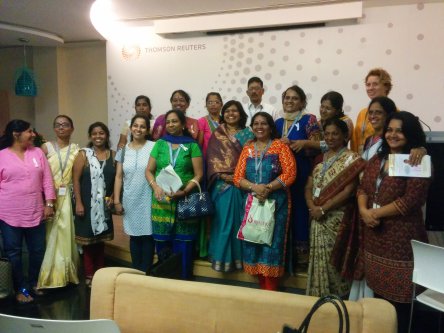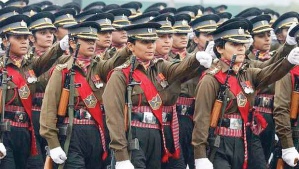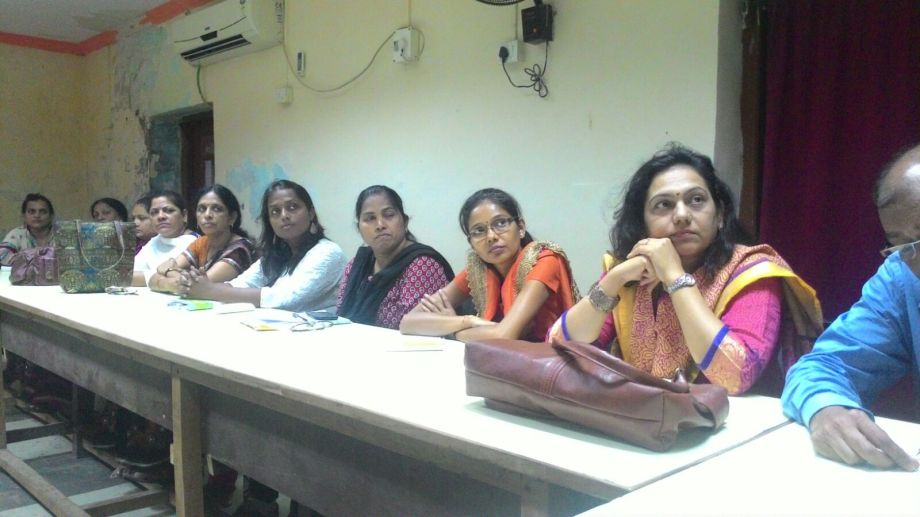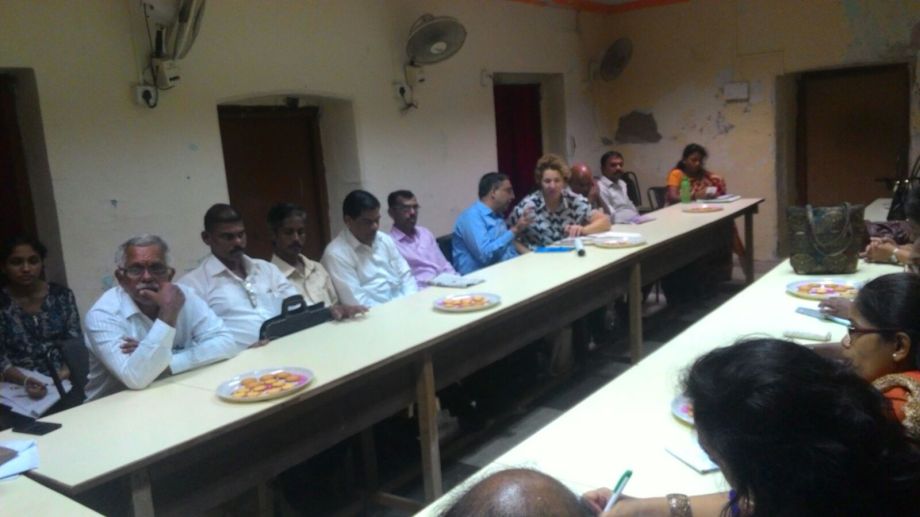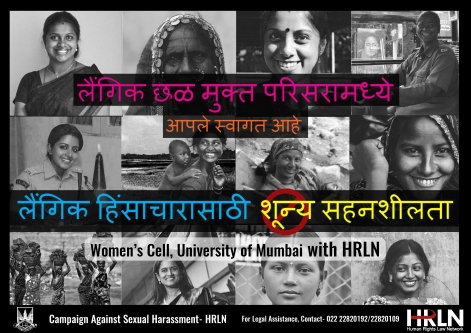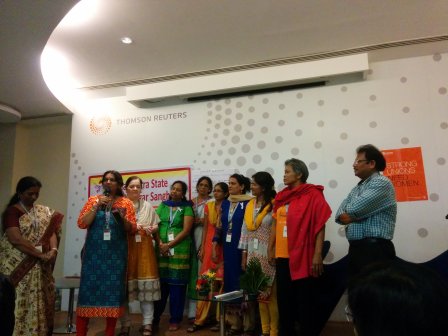
Of the total number of crimes against women reported in 1990, half related to molestation and harassment in the workplace. In 1997, in the landmark Vishakha judgement, the Supreme Court of India took a stand against sexual harassment of women in the workplace. The Court also laid down detailed guidelines for prevention and redressal of grievances. The National Commission for Women subsequently elaborated these guidelines into a Code of Conduct for employers. In 2013 The Sexual Harassment of Women at Workplace ( Prevention, Prohibition and Redressal) Act was enacted to prevent harassment of women at workplace. As the number of working women has been increasing and while that is a welcoming change; we have failed to a great extent to make the work places gender sensitive.
Sexual Violence –
The Sexual Harassment of Women at Workplace Act 2013 has been enacted with the objective of providing women protection against sexual harassment at the workplace and for the prevention and redressal of such complaints. Sexual harassment at the workplace is any unwelcome sexually defined behaviour which has the purpose or effect of interfering with the individual’s work performance or creating an intimidating, hostile, abusive or offensive working environment. Despite the enactment of the law in 2013, the state has failed to look into effective implementation of the law. Though the law provides for constitution of Local Complaints Committee at District Level as well as an Internal Complaints Committee in every workplace constituting more than 10 employees, there is no awareness of the new legislation and lack of committees in private as well as public sector.

Maharashtra State Transport Kamgar Sanghatna is one such organization planning to effectively implement the SHWP Act. It is a 60 years old organisation involved in protecting workers rights and procuring improved working conditions of thousands of workers working in MSRTC.

The management of MSRTC over the last decade or so decided to appoint women in various positions. Though at present there are about 7500 women in MSRTC, this number is going up day by day. Women today are working as bus conductors, mechanics, technicians and in other mobile and non-mobile which are mostly seen as men’s work. The women are not only doing these jobs with efficiency, but also making public transport much safer for women passenger, merely with their presence. However, with the women joining the road transport industry, it has also been observed that they are subjected to a lot of hardships and problems at their workplaces. Road rage, violence, abuse and harassment both mental and sexual are rampant apart from lack of basic facilities like rest rooms, toilets, drinking water etc.The women workers, particularly those assigned to be field duties are working under a lot of stress and duress mainly due to the nature of their jobs. Like any other sector in our society, here are huge number of cases that go unreported.
It is especially in rural areas of Maharashtra and districts such as Jalgaon , Chandrapur , Gadchiroli, Aurangabad etc that the number of sexual harassment incidents of transport workers is rampant. Access to legal know how and suppression by male dominant employees make it all the more difficult for aggrieved women to redress their grievances.
The above-mentioned scenario can be explained in depth and substantiated with the help of few case studies. The case studies are based on true cases of sexual harassment reported by MSTKS workers. It describes and depict both in livid and vivid manner the severe repercussions faced by women owing to their professional choices.
- In Jalgaon – A woman bus conductor Neeta (name changed to maintain confidentiality) faced sexual harassment while she was on duty. As it was evening time, there were few people in the bus, one person was sitting alone at the back, Neeta went to him and said ‘kaka ticket le lo’ (please take the ticket) , the person refused, and when Neeta requested him again to take the ticket, to her horror he opened his Zip and showed her his private parts. This incident left her horrified, shocked and helpless.
- Priya (name changed) was new at job, when she found that the Division collector (DC) was paying some extra attention to her,she initially ignored it, and it gradually developed into asking sexual advances from her. She was forced to do night duty, like many other women conductors, when she requested for a day time duty, the DC told her that you will get day time duty only if ‘you eat udad ki daal’ a code word to demand of sex.
- Radha (name changed) was asked on the face to come and sleep with the supervisor, and when she refused, the supervisor made sure that the work environment gets really difficult for her.
The women are either forced to leave the jobs when they do not reciprocate to these sexual advances, or suffer in silence and succumb to the situation.
These are not only individual or rare incidents, there are thousands of incidents happening all around us. It’s a very common pattern to create hostile work environment for women when they say no to sexual favours to their superiors. Most of the times the women are even more vulnerable in situations where the superior is male, and have the authority to decide working hours and areas for women. These cases go unreported because even though we have the provision of Internal Complaint Committees in all the offices and Local Complaint Committees in districts (for unorganised sector), under Sexual Harassment at Work place (Prevention, Prohibition and Redressal) Act 2013, the implementation is very poor, and committees are under the pressure of management.
Another major issue to be addressed to along with working women and violence against them is the fact that women passengers equally face such violence on daily basis.Passengers seem to lose hope of feeling secure and safe even while using Public transport.Passenger Unions of Maharashtra State Transport are striving hard to take all measures necessary to provide for a safe environment for Passengers.
Gender sensitive work environment – There are a lot of cases of women bus conductors going through miscarriages in Maharahstra. The provision for maternity leave is for 6 months, thus women with 2-3 months of pregnancy go to work. Instead of getting a job of light nature, or a desk job, these women have no choice but to continue their jobs of travelling on badly constructed roads in rural areas, and go through complicates and miscarriages.
There are no properly constructed rest rooms for women workers, no facility of dropping them back to home safely after their night duties. It is a shame that we have majorly failed to create a gender sensitive work places, the situations are far worse for class four women employees and unorganised sector women, since the negotiation power is very less.
As a response to this situation, Maharashtra State Transport Sangathana has decided to take the first step to bring a change. The union is bringing together all women workers to put a stop to sexual and gender based violence, bring awareness and ensure some systemic changes for women’s safety at workplace. In this context, the union is launching a Statewide campaign on 25th of November 2015 in Maharashtra, with support of several transport, passenger unions, media, NGOs, women groups and men’s groups working to end gender based violence. This campaign will be launched by MSTKS all over the state of Maharashtra and all the 32 divisions are expected to join in. Posters will be published, slogans framed and awareness programmes will be conducted at the division level. The union’s State Level Women organiser Sheela Sanjay Naikwade is taking initiative role to launch this campaign.
In order to plan and support this state level campaign a pre planning meeting was held on the 11th of September 2015. This is only the beginning to a much needed awareness campaign which ought to be maintained sustainably.
